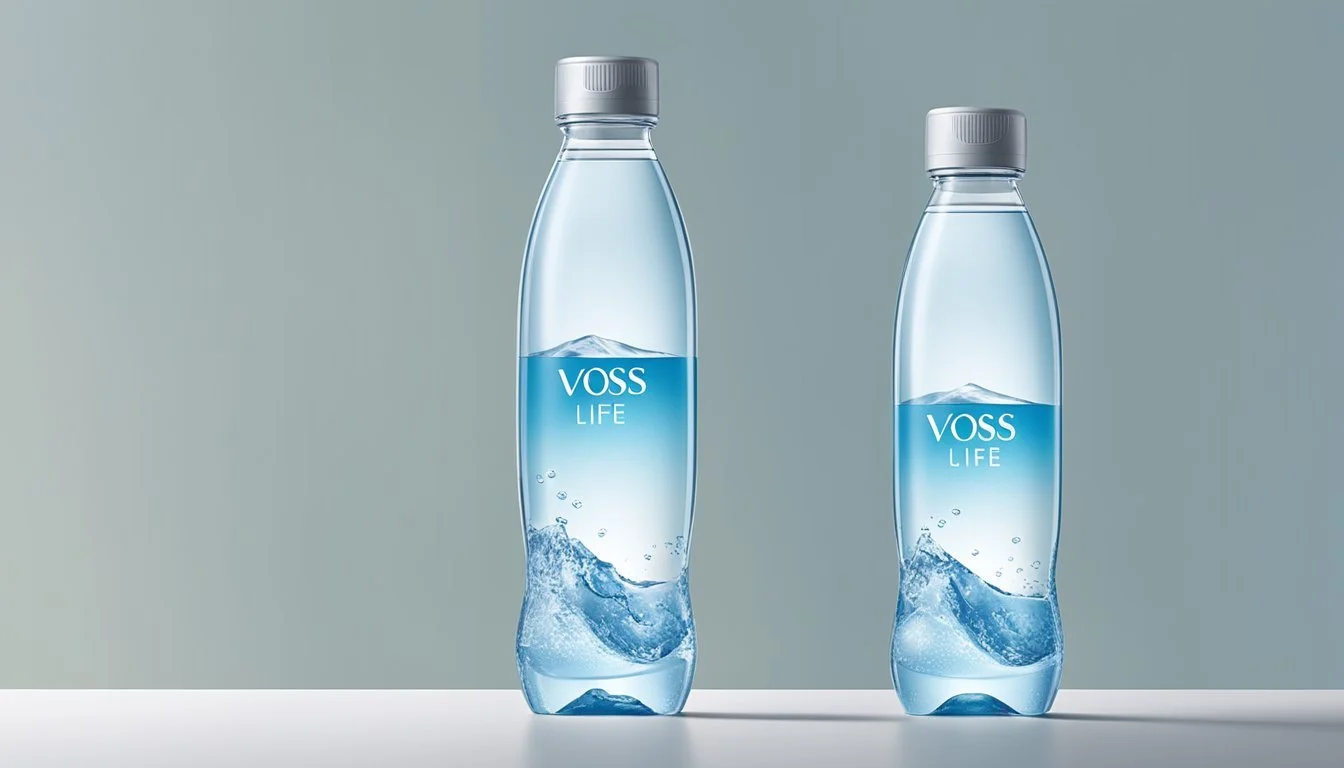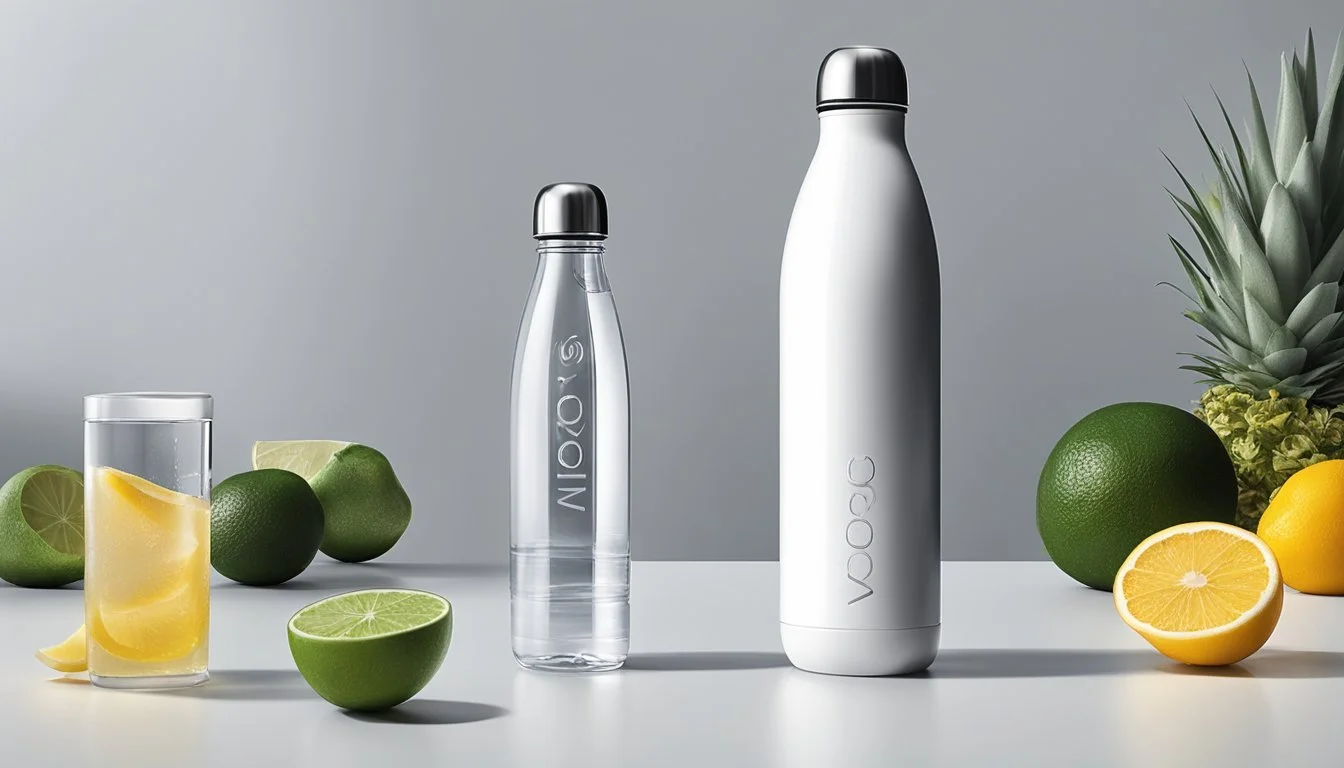Voss vs. Pure Life
Comprehensive Comparison of Bottled Water Quality
When it comes to choosing bottled water, consumers often find themselves deciding between brands like Voss and Nestlé Pure Life. Both are well-known names in the market, yet they cater to different preferences and needs. Voss offers premium, high-end water with a focus on purity and taste, while Pure Life provides a more affordable and widely accessible option.
Voss water, sourced from an artesian well in Norway, prides itself on its crisp, clean taste and minimalistic packaging. It is often associated with luxury and is a favorite in fine dining establishments. In contrast, Pure Life, a product of Nestlé Waters, is sourced from multiple wells and springs and is known for being available almost everywhere, making it a convenient choice for hydration on the go.
While both brands serve their purpose, the decision ultimately depends on what the consumer values more: the luxurious experience and taste of Voss or the widespread availability and affordability of Pure Life. Each has its distinct advantages, catering to different segments of the market.
The Bottled Water Industry Overview
The bottled water industry is a rapidly growing market that caters to a diverse consumer base. From luxury brands to affordable options, the demand for bottled water is fueled by various factors including health consciousness and convenience.
Understanding Bottled Water
Bottled water is sourced and processed differently depending on the brand. Voss, for example, markets itself as premium "spring water" originating from Norwegian aquifers. In contrast, Nestlé Pure Life enhances its water with a light blend of minerals.
Brands like Dasani and Aquafina, both owned by Coca-Cola, treat their water through purification processes, differing from brands like Evian and Fiji that use natural sources. The U.S. bottled water market is diverse, including brands such as Poland Spring, Arrowhead, and Essentia.
Bottled Water Market Trends
The bottled water market has grown significantly over the past decade, with global sales increasing by 73% from 2010 to 2020. This growth is attributed to a rising health awareness and the convenience of bottled waters.
Brands have diversified their offerings to meet different consumer preferences. Smartwater and Essentia focus on alkaline water, while Luxury and premium brands like Voss target a niche market. Nestlé Pure Life aims for a broad audience by balancing cost and quality.
The reputation and marketing strategies of these brands play a crucial role in their market position. As demand continues to rise, new and established brands keep innovating to stay competitive in this booming industry.
Comparing Voss and Pure Life
Voss and Pure Life are two prominent bottled water brands, each offering unique attributes in terms of taste, purity, and sourcing. This comparison delves into their brand offerings, price accessibility, sources, purification processes, and taste profiles.
Brand Overview and Offerings
Voss is known for its sleek, cylindrical bottles and artesian water sourced from Norway. It caters to those seeking high-quality drinking water with a minimalist, upscale aesthetic.
Pure Life, a brand by Nestlé, focuses on widespread availability and affordability. It offers purified water, which goes through stringent filtration processes to ensure safety and cleanliness for everyday consumption.
Each brand caters to different markets: Voss emphasizes luxury and purity, while Pure Life prioritizes accessibility and price.
Price Point and Accessibility
Voss is positioned as a premium brand. It often commands a higher price due to its upscale branding and the cost associated with sourcing water from an artesian well in Norway.
Pure Life is widely available in supermarkets and convenience stores. Its pricing reflects its mass-market approach, making it a budget-friendly option for consumers.
For price-sensitive buyers, Pure Life offers better value, whereas those looking for an upscale experience might prefer Voss.
Water Source and Origin
Voss sources its water from an artesian well in Iveland, southern Norway. Artesian wells tap into underground sources under pressure, ensuring minimal contamination and a naturally high standard of purity.
Pure Life, in contrast, sources from municipal water supplies and well water that go through purification processes. This method ensures widespread availability but may impact perceptions of natural purity compared to a single, remote source like Voss.
Voss’s reliance on a singular, artesian source contrasts with the varied municipal origins of Pure Life.
Purification and Filtration Process
Voss water undergoes minimal treatment since it comes from a deep artesian well, which provides naturally clean water. The treatment focuses on maintaining purity without extensive processing.
Pure Life implements a comprehensive purification process that includes reverse osmosis, filtration, and mineral enhancement. This ensures the water meets stringent safety standards. They also add minerals for taste, replicating the balance found in natural waters.
Pure Life’s detailed purification results in consistently safe water, while Voss emphasizes the inherent purity of its artesian source.
Taste Profile and Mineral Content
Voss water has a clean, crisp taste attributed to its low mineral content and high purity. It lacks the aftertaste found in waters with higher mineral concentrations. The pH level of Voss hovers around neutral, enhancing its lightness.
Pure Life has a more pronounced taste due to added minerals. These are included to enhance flavor and ensure consistency, resulting in a slightly higher mineral content than Voss. The purification process ensures it remains free from contaminants, but it may not match the ‘natural’ taste of Voss.
Voss offers a subtle, pure drinking experience, while Pure Life provides a consistent, mineral-enhanced flavor.
Health and Hydration
Voss and Pure Life both offer solutions for hydration, but their mineral content and electrolyte balance can impact health differently.
Hydration and Electrolyte Content
Voss water is valued for its purity and neutral taste. It is sourced from an artesian well in Norway. This ensures a lower mineral content, which can be ideal for those seeking a clean-tasting water without a significant alkaline profile. pH level: around 6-7. Mineral content is particularly low in sodium and calcium but lacks significant magnesium or potassium.
Pure Life, on the other hand, is a product under Nestlé’s large portfolio. It is often sourced from various springs and purified through reverse osmosis. The electrolyte content in Pure Life is adjusted for taste and rehydration efficiency. This water is fortified with minerals like calcium and magnesium, providing a slight alkalinity. pH level: around 7-8. Pure Life contains trace amounts of sodium and potassium for better hydration.
Comparing the two brands, Pure Life may offer more electrolytes and slight benefits for hydration post-exercise due to its mineral content. Voss, preferred for its clean and crisp profile, may be better for those who prioritize taste purity without additional minerals.
Brand pH Level Calcium Magnesium Sodium Potassium Voss 6-7 Low Low Low Low Pure Life 7-8 Moderate Moderate Low Trace
In summary, hydrated properly with either can contribute to overall well-being, but the choice may vary based on personal preferences for taste and desired mineral content.
Environmental Impact and Sustainability
The environmental footprint of bottled water varies significantly, influenced by factors such as packaging materials, recycling policies, and water sourcing practices. Here we explore how Voss and Pure Life compare across these key areas.
Bottles and Packaging
Voss and Pure Life use different types of bottles that impact the environment in various ways. Voss offers water in both plastic and glass bottles, with glass being more environmentally friendly due to its recyclability and longer life cycle. Meanwhile, Pure Life predominantly uses plastic bottles, which have a higher carbon footprint and contribute to plastic waste.
Voss’s glass bottles are often preferred for their luxurious feel and reusability. In contrast, Pure Life’s focus remains on affordability and convenience, which leads to a higher production of single-use plastic bottles.
Recycling and Environmental Policies
Voss and Pure Life have implemented recycling programs but with different levels of emphasis and success. Voss promotes the recyclability of their glass bottles, encouraging consumers to reuse or recycle them. Their plastic bottles are also BPA-free, reducing potential health hazards and environmental contamination.
Pure Life has committed to using recycled PET for their plastic bottles, working towards improving their recycling rates. They actively participate in creating a circular economy by supporting community recycling initiatives and partnerships aimed at waste reduction.
Sustainable Water Sources
Source sustainability is a critical focus for both companies. Voss sources its water from an aquifer in Norway, ensuring high quality and purity while maintaining strict monitoring of water extraction practices to avoid depletion. The protection of these sources is a priority, ensuring minimal environmental disruption.
Pure Life sources its water from multiple springs in North America, including well-known locations such as Poland Spring. They follow EPA regulations to ensure sustainable water extraction. Nestlé, the parent company, invests in water conservation projects, aiming to balance water usage with replenishment efforts.
Through these focused sections, it's clear that Voss and Pure Life approach sustainability differently, with each making strides in minimizing their environmental impact.
Consumer Considerations
When choosing between Voss and Pure Life bottled water, consumers often evaluate taste, convenience, and health factors. These key considerations help guide their decision based on personal preferences and lifestyle needs.
Taste Preferences and Water Pairing
Taste is often a primary factor in selecting bottled water. Voss is renowned for its clean, neutral taste, making it an excellent choice for those seeking a pure hydrational experience. Its smooth profile pairs well with foods and beverages that have subtle flavors, such as fine wines and gourmet dishes.
Pure Life features a light blend of minerals for taste, which some may find slightly metallic. This makes it suitable for everyday hydration but may be less appealing when paired with delicate drinks like coffee or herbal teas. Consumers who prefer a hint of minerality might favor Pure Life, while those who want an almost flavorless profile might opt for Voss.
Convenience and Lifestyle Choices
Convenience plays a significant role in the choice between Voss and Pure Life. Pure Life, being a product of Nestlé, benefits from extensive availability in supermarkets and convenience stores. Its availability in various sizes, from small bottles to large jugs, makes it practical for different occasions.
On the other hand, Voss positions itself as a premium brand, typically found in upscale venues and select retailers. Its sleek glass bottle design appeals to those who value aesthetics and luxury. However, this design can be less practical for on-the-go hydration compared to Pure Life’s more durable plastic bottles.
Health Concerns and Quality Perception
Health perceptions and the quality of water are critical to consumers. Voss offers a high standard of purity, sourced from an underground aquifer in Norway, making it appealing to those concerned with the source and quality of their water. It’s often favored by those interested in premium bottled waters.
Pure Life, enriched with a blend of minerals, claims to support overall wellness through balanced hydration. It’s readily available and trusted by many for its consistent quality. While it may not have the same luxury appeal as Voss, it meets the demands of families and individuals looking for reliable and accessible bottled water.
Balancing taste, convenience, and health factors helps consumers make informed decisions on whether Voss or Pure Life best suits their hydration needs.
Alternatives to Bottled Water
Exploring alternatives to bottled water can be informative and beneficial for those seeking economical or environmentally friendly options. Two primary alternatives include tap water enhanced with filters and other bottled water brands.
Tap Water and Filters
Tap water, often regulated by stringent safety standards, is a readily available alternative to bottled water. Many regions in the United States, for example, provide high-quality tap water that meets safety and taste standards set by the Environmental Protection Agency (EPA).
Using water filters, such as activated carbon filters, can significantly improve the taste and purity of tap water. They are effective at removing chlorine, sediments, and certain heavy metals like lead. Filters like those found in pitcher systems or installed directly onto faucets can be convenient options. This combination of good tap water quality and efficient filtering makes for a practical, cost-effective, and environmentally friendly alternative to bottled water.
Other Bottled Water Competitors
Numerous bottled water brands serve as alternatives to mainstream options like Voss and Pure Life. Brands like Evian, sourced from the French Alps, offer natural spring water known for its balanced mineral content. Fiji Water is another premium brand, distinct for its soft taste derived from filtering through volcanic rocks.
For those who prefer alkaline water, Essentia boasts a pH of 9.5 and is marketed for its supercharged hydration properties. Meanwhile, brands like Nestlé Pure Life are more universally accessible, although they may not score as high on taste tests compared to premium brands. Each option presents unique benefits, allowing consumers to choose based on preference, health considerations, and budget.
More About Voss
More About Pure Life
Cascade Mountain vs Pure Life: Which Bottled Water is Better?
Hawaii Volcanic vs Pure Life: Which Bottled Water is Better?
Hawaiian Springs vs Pure Life: Which Bottled Water is Better?
Icelandic Glacial vs Pure Life: Which Bottled Water is Better?
Nestle Pure Life vs Pure Life: Which Bottled Water is Better?
Pure Life vs Kirkland Signature: Which Bottled Water is Better?
Pure Life vs Whole Foods 365: Which Bottled Water is Better?
Richard's Rainwater vs Pure Life: Which Bottled Water is Better?
Solan de Cabras vs Pure Life: Which Bottled Water is Better?
Talking Rain AQA vs Pure Life: Which Bottled Water is Better?
Whole Foods Italian Still Mineral water vs Pure Life: Which Bottled Water is Better?






